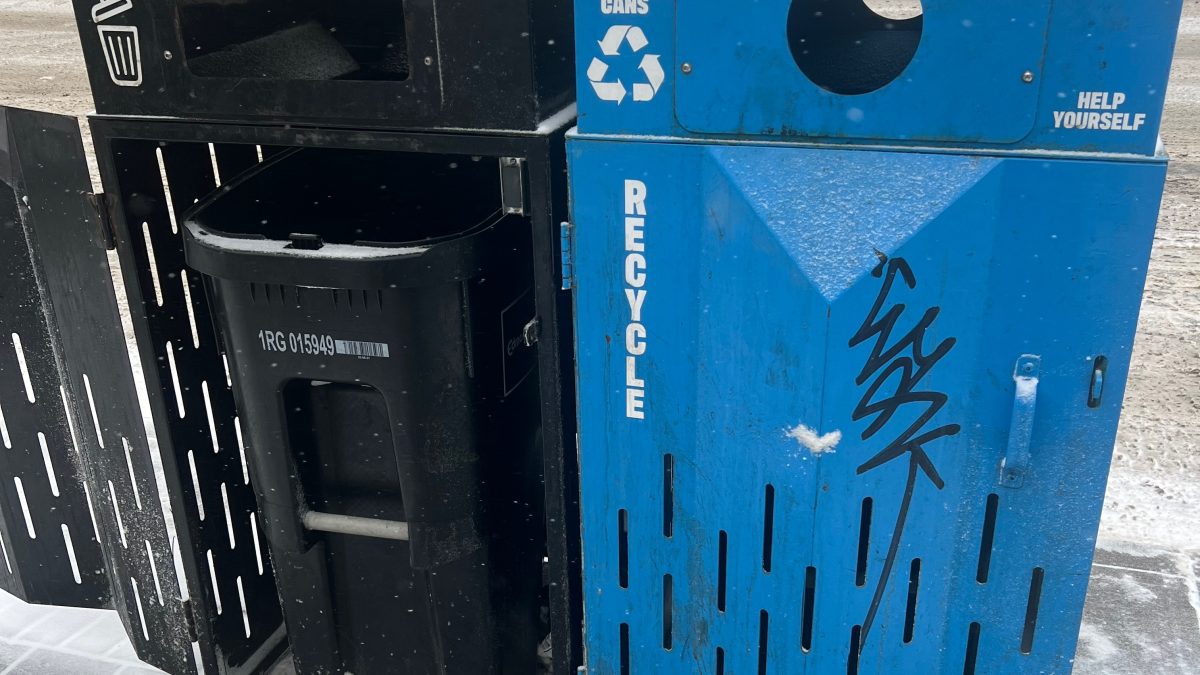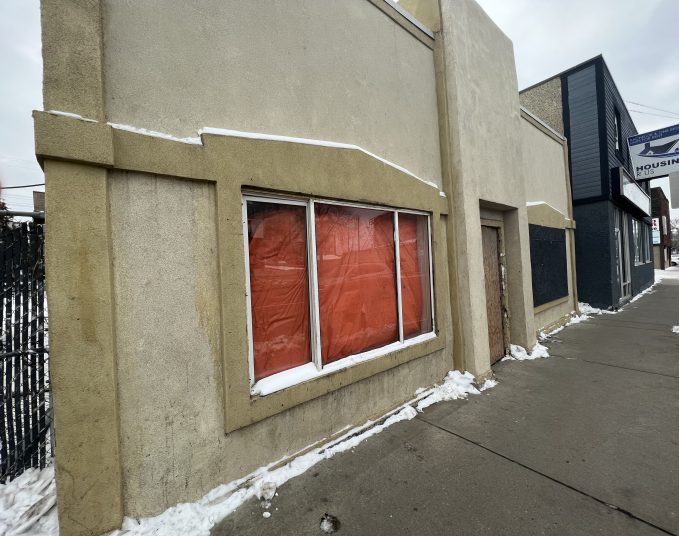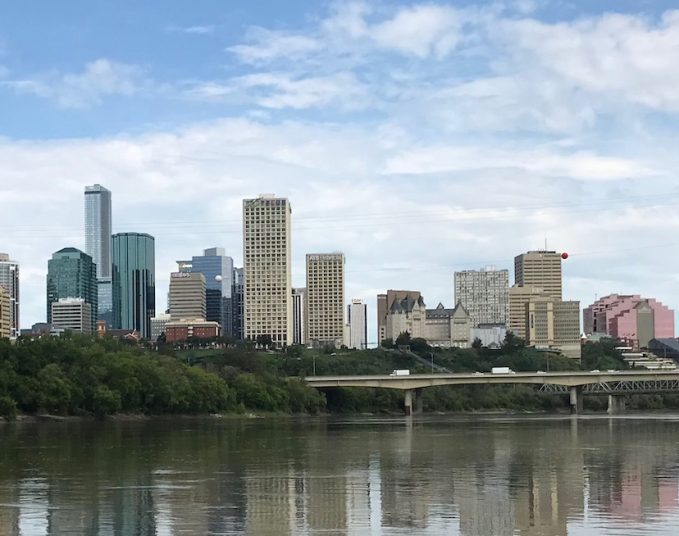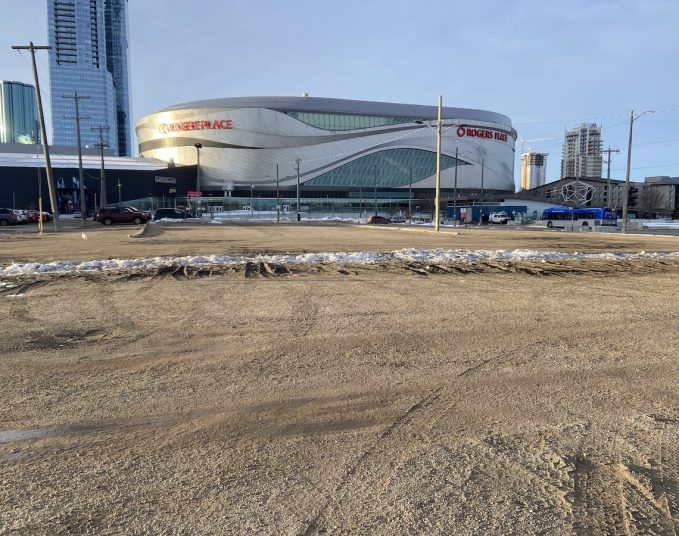When it comes to “reading the room,” you’d have to be practically tone deaf if you can’t pick up on the tension that’s built up between the leaders of downtown revitalization efforts and those sitting on city council.
Those forces were clearly on display this past week. Downtown Recovery Coalition (DRC) chair Alex Hryciw and Puneeta McBryan, the CEO of the Edmonton Downtown Business Association (EDBA), were in front of the City’s Community and Public Services Committee to discuss cleanliness initiatives in the core. That’s an issue we can all get behind, right?
But, it wasn’t hard to pick up on the politics at play. McBryan and Hryciw dropped hints several times that there were bigger issues at stake, including a lack of investment in the downtown area. The discussion on cleanliness came just days after council voted against a plan that could have seen the City offer grants to jumpstart stalled residential development in the downtown.
It was clear that council’s decision not to back the grant plan wasn’t going over well with the DRC and the EDBA — and it spilled over into the discussion about cleanliness.
Hryciw suggested that “after last week’s decision,” putting some more money towards downtown cleanliness was the least council could do.
“Investors are questioning where they should be spending a lot of their money,” she said.
Now, was that comment about keeping the downtown clean, or a passive-aggressive comment on council’s decision from the previous week? Can we take “All of the Above” for $1,000, Alex?
McBryan said of the litter issue: “If we see this walking around on a day-to-day basis, so are investors and developers.”
Nice drop of “investors and developers” into the conversation, a reminder the City hasn’t issued a building permit for a residential project in the core since 2021.
McBryan had planned to show a series of photos to council of general uncleanliness in the core — but she had run out of time (the rules are any presenter at City Hall gets five minutes.) After the meeting, she told me that the idea was to make the councillors understand that this is what investors see when they walk the streets of the core.
“It is difficult to get investors to invest in a downtown that looks like this, without any incentives,” she said.
In 2023, a pilot project was launched, with enhanced cleaning measures brought to the core. Almost half of the $3-million project was funded by the province. But, in the new provincial budget, this project received no additional money. So, the program was essentially $1.5 million short for 2024, and there was no guarantee it would continue at all after the autumn of this year.
Administration told the committee members there were plans in place to make the cleanliness project work as well as it could with whatever money was available. But, of course, it would mean some parts of the project, like park rehabilitation, would need to be cut back or chopped.
From June of 2023 to January of this year, workers on the downtown enhanced cleaning project responded to 1,631 garbage and litter notifications, and picked up 15,140 needles. No, that is not a typo.
Hryciw said the DRC understands the City is strapped for extra funds, and would be open to helping find some efficiencies. And councillors Andrew Knack and Aaron Paquette spoke about wanting to see cleanliness initiatives spread to other neighbourhoods, such as Stony Plain Road and Belvedere.
“If we don’t have budget for it, there’s something wrong with that,” said Paquette. He said he’s heard the “dirt city” and “brown town” digs that are made about Edmonton, but that “no one is in a joking mood about this issue.”
The committee recommended that, in the spring budget process, council look at ways to make the downtown cleaning program whole to make up for the provincial gap. Then, in the fall budget process, council and administration will look at ways of making the project permanent.
But, against administration’s advice, the committee also recommended the City look at ways the cleanliness program can be conducted with non-profit organizations and social enterprises. Administration warned against it because it could violate agreements with CUPE 30, and the City is in the negotiation process with that union at the moment, as its collective bargaining agreement came to an end on Dec. 30, 2023.
BUT, WAIT, THERE’S MORE
McBryan wasn’t done venting her frustrations. At another committee meeting this week, she and her Old Strathcona Business Association counterpart, Cherie Klassen, eviscerated a report that was prepared by a U.K.-based consultant on the city’s nighttime economy strategy. The report, which was prepared by Night Time Economy Solutions (NTES), was supposed to be a road map for how Edmonton can better support night life, restaurants and businesses that start to hop when our offices close. This report was supported by funding from the federal government.
McBryan called the report “unusable” and “indefensible,” stating that it simply summarized where Edmonton is at the moment, and offered no real suggestions for a way forward. And, she said some of the references in the report were out-of-date, with mentions of programs that had been discontinued. As well, there was no mention of the downtown night patrol, which was launched in 2023 to help downtown residents and visitors feel more safe in the nighttime hours.
“It’s an audit, not a report,” said Klassen.
“The report reinforces what we already know.”
NTES staff came to Edmonton early in 2023 to survey stakeholders. The report was completed in June of 2023. McBryan said the blame for the issues in the report don’t lay at council’s feet, but she is frustrated that it sat with administration for so long without any critical questions being asked about its findings.
“It’s not even a complete scan of where we are today,” McBryan said.
Both of them referred to NTES’s work as a “deep disappointment.”
A big bone of contention is the report’s findings that businesses don’t feel supported by organizations that serve Business Improvement Areas (BIAs), like the Old Strathcona Business Association and the Edmonton Downtown Business Association. Klassen went as far to call the report “unethical.” Is it turf protection from Klassen and McBryan? Well, their issue is that NTES had asked about how businesses feel supported by a number of organizations, from BIAs to Explore Edmonton to the City itself. But, in the report, only the BIAs were mentioned. As well, there was no tracking of who responded to the questions — so, there’s no proof if the respondents actually belong to a BIA or even know what a BIA is.
Mayor Amarjeet Sohi admitted the commissioning of the report may have set a plan to improve the nighttime economy back by one-and-a-half to two years, and that he has to bear some of the responsibility for that. The plan, moving forward, is to see if room can be made in the City’s budget to bring in a nighttime economy commissioner, who will coordinate efforts to make the City more welcoming in the evening hours. Paquette said making sure people going to restaurants and shows are welcomed by clean streets and a feeling of safety is paramount.
“Those are table stakes,” he said.
Savvy AF. Blunt AF. Edmonton AF.




